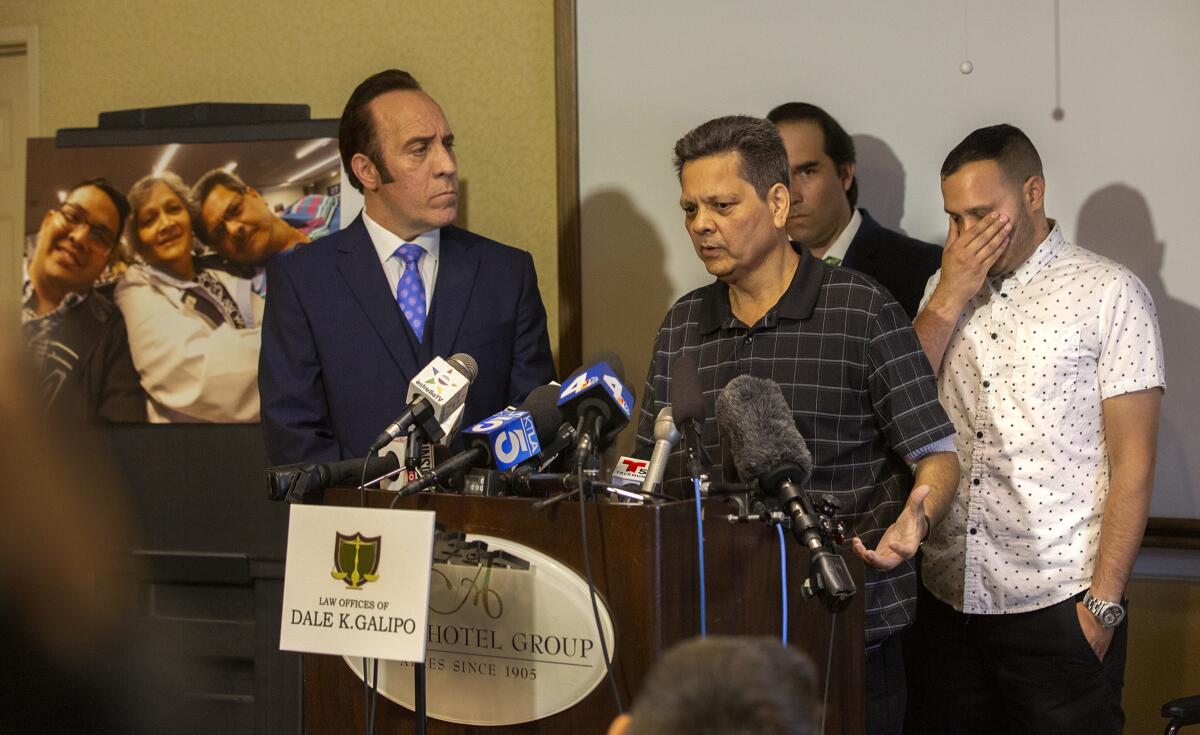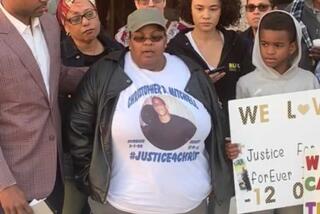Editorial: Two years after Costco shooting, a cop may be held accountable

Reports on the too-cozy ties between local district attorneys and local police began piling up over the last decade, and they all generally found that elected prosecutors rarely prosecute police for killing unarmed civilians. They relied too much on police department cooperation during criminal investigations and police union money at election time to risk that relationship.
One answer was to turn the prosecution of cops accused of unlawful deadly force over to someone else, like the state attorney general. A modified version of that idea took shape last year as Assembly Bill 1506, which passed and was signed into law. It took effect July 1, only a few months after Rob Bonta was appointed California attorney general.
Bonta on Monday used his powers to file manslaughter charges against Salvador Sanchez, who was an off-duty Los Angeles police officer when he shot and killed a mentally disabled man inside a crowded Costco in the Riverside County city of Corona in 2019. Sanchez fired 10 shots, killing Kenneth French and injuring his parents.
Bonta’s action is a step in the right direction, even as it raises a number of questions about the criminal justice process and its ability to hold police accountable free from political influence.
For example, if we can’t rely on district attorneys because they are too enmeshed in politics and too reliant on police union money, why are we better off with the attorney general — who is also an elected official and also relies on campaign donations from police?
The answer is imperfect because attorneys general are indeed somewhat beholden to police. Bonta was appointed to the office by Gov. Gavin Newsom, filling the vacancy left by the departure of Xavier Becerra for a Cabinet post in President Biden’s administration. But Bonta was likely to run for the job anyway, and in any event he is now deep in election mode as he campaigns for election next year in hopes of landing a full term.
But as a statewide official, the attorney general is not so directly tied into the local political or police establishment, in Riverside County or anywhere else. It’s tempting to look for decision-makers completely aloof from politics, like, say, U.S. attorneys, who have no election campaigns to run. But they are appointed by presidents and, as such, may seek to curry favor in hopes of future appointments.
What about the Riverside County grand jury, which declined to indict Sanchez in 2019? Surely it was the right, apolitical body to make a decision, and Bonta’s decision overrides it?
It is true that grand juries don’t collect campaign donations and don’t run for office, yet they are widely seen as tools of the district attorney. They make their decisions based solely on the evidence and argument the D.A. puts before it. There is an old saying attributed to various luminaries that “a district attorney could get a grand jury to indict a ham sandwich if he wanted to.”
The reverse may also be true: By leaving the charging decision to the grand jury, the D.A. escapes criticism from both those who want him to prosecute and those who do not.
But surely it’s the timing, and not the attorney general, that made the difference here, right? There was plenty of skepticism of police in 2019, but nowhere near as much as there is today, in the wake of last year’s police killing of George Floyd in Minneapolis, an angry summer of sometimes-violent protests, and the murder conviction and sentencing this year of ex-Officer Derek Chauvin. Would Sanchez be in the clear today if the attorney general review had taken place in 2019?
Perhaps. The tenor of the times plays a role. Besides, Becerra was attorney general then, and he found no reason to charge Sacramento police officers in the killing of Stephon Clark.
Still, the differences between the French and the Clark shootings are significant. Police suspected Clark of committing a crime, they were on duty, it was nighttime and outdoors, and they were following him and fired when they thought they saw a gun (they were wrong; it was a phone). Sanchez claimed that he, too, thought he saw a gun. But he was off-duty and surrounded with bystanders, and the circumstances can leave the impression that he acted out of anger rather than fear. That may now be for a trial jury to decide.
Neither decision can be free of second-guessing, but the same can be said of any decision to charge or not charge a crime. Sanchez’s actions were found “out of policy” by the Los Angeles Police Commission, and he lost his job, but he very nearly escaped further accountability for what appears to have been a shockingly irresponsible shooting. There may now be a trial, but in the meantime Bonta’s decision to charge should restore a measure of confidence in the criminal justice system.
More to Read
A cure for the common opinion
Get thought-provoking perspectives with our weekly newsletter.
You may occasionally receive promotional content from the Los Angeles Times.










